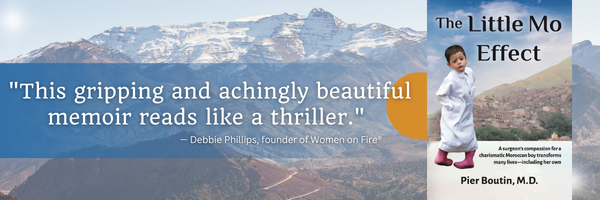Authored by Dr. Mary James, ND
Genetic tests are widely advertised these days, promising all sorts of information. The health information ranges from the insignificant (the likelihood of your urine stinking after you eat asparagus) to life-or-death (your risk of developing cancer or dementia).

Until recently, all genetic tests were available only through your doctor, so you could discuss your questions with her. But now many tests can be ordered by the consumer directly from the lab. But are these tests worth it? Are they reliable? If a DNA test told you that you were at risk for a particular disease, would you want to know about it? Let’s look at the pros and cons of genetic testing so you can decide if it’s right for you.
When genetic testing can be useful
A great thing about the Human Genome Project is that it blew up the myth that our genes are our destiny. In other words, environmental influences are just as important.It also underscored the fact that we’re all unique. No one diet or exercise protocol or medication works the same way in everyone, and genetic differences are a big reason why.
We’ve learned a lot about how genes influence health. Here are some important examples of when knowledge from genetic testing becomes power over your health:
- Identifying genetic predisposition to health conditions can inform diet and lifestyle choices that help prevent their development.
- If you know that your body metabolizes a particular medication more slowly than usual — thus putting you at increased risk of side effects of the drug — your doctor can prescribe a lower dose than what’s normally recommended.
- If you’re on the blood-thinning drug Coumadin, you know that it has a very narrow therapeutic window — too much in your system and you run the risk of bleeding; too little and you clot. A genetic test for Coumadin tolerance can help guide dosing so that you don’t run into problems.
- Knowing that you carry genes for celiac disease can help you decide how strictly to avoid gluten in your diet.
- If you know that your body has trouble methylating the folic acid from your diet that is used to break down homocysteine, you might decide to bypass that stumbling block and take a supplement containing already-methylated folate.
The list goes on. Bottom line, there are real benefits to getting to know your own DNA — not because our genes are our destiny, but because testing lets us know how our choices affect our health — hopefully for the better!
But first, a few warnings about genomic studies
Genomics is a young science. The Human Genome Project was completed in the year 2000. That’s pretty recent compared to, say, the discovery of the Germ Theory of Disease in the mid-1800s. Because the science is young, new clinical research on genetic variants surfaces daily. Some studies are solid, while others are weak.And clinical effects of DNA variants can vary significantly depending on the population group or ethnicity. Moreover, while some new studies confirm previous findings,other studies contradict them.
Not all DNA variants (a.k.a. single nucleotide polymorphisms or SNPs) affect physiology.Some SNPs profoundly impact function and others only slightly. When a new and clinically significant SNP lands on the horizon, it’s tempting to attach too much significance to it and assume it’s the only SNP or factor that influences that function. The genetic variant, ApoE4, is sometimes referred to as the Alzheimer’s gene. While ApoE4 does increase your risk of the disease, it does not dictate that you will develop it, and it’s not the only gene that influences your risk. For example, an entirely different gene than ApoE is associated with risk of early-onset Alzheimer’s.
The strength of these correlations between genes and health outcomes also depends on the depth and quality of the underlying data. In many cases, there isn’t much.If you are from a large ethnic group that has been extensively tested, the data may be pretty good. But most of us are blends of “gene pools,” so the assessments of risk can be crude at best. We also can’t assume that a DNA variant will have the same effect in Caucasian women that it’s been shown to have in Asian women,for instance.
Perhaps the biggest qualifier of all is that through the Human Genome Project we learned that genetic expression is subject to change. In effect, genes are turned on and off. It appears there are thousands of factors that cause such changes, including diet and emotional experience. This means we need huge amounts of data about huge numbers of variables to make real risk associations — and we are still learning what the variables are.
So, let’s take what genetic tests tell us with a big grain of salt. Consider the information, but also keep in mind that we will continue to learn much more overtime about the influence of different genes on our health.

Reasons to be cautious about direct-to-consumer genetic testing
Many of the companies selling genetic testing also provide specific nutritional tips based on your DNA results — an approach labeled “nutrigenetics.” The idea of custom-tailored recommendations holds tremendous appeal.
Any company providing a clinical interpretation of your DNA results, especially ones that include treatment recommendations, should be committed to giving you balanced and accurate information. A key requirement is to stay on top of the research. Is peak from experience, as I used to do just that for a laboratory that provides genetic testing.
Some companies not only give you DNA results, but also personalized recommendations for nutritional supplements. Some carry their own product line; others partner with supplement companies. Many of those recommendations might be based on research findings that don’t vary over time, even in the light of new research. So be wary of these conflicts of interest. You don’t want to commit to a lifetime of supplements that you might not really need.
Genes are only part of the picture
I recently met a woman who had just gotten a double-mastectomy. Not because her breasts contained cancer, but because she feared that they might at some point.Two of her blood relatives had died from breast cancer. Feeling scared, she got tested and learned that she was positive for a mutation in one of her BRCA genes, commonly referred to as “the breast cancer gene.”
Her fear was understandable considering her family history. But we now know that genetic predisposition is not the same as destiny, even if that’s our worst fear.In terms of breast cancer, only 5-10% of all cases are actually hereditary. One out of every 500 women is positive for one of the BRCA mutations, the most common cause of hereditary breast cancer. Half of those women will develop the disease by age 70.
Pretty scary, right? Well, let’s look at it another way — this also means that 50%of those women with a BRCA mutation never develop breast cancer. Why the difference?The answer is environment.
While your genotype, or the collection of DNA you inherited from your mother and father, does influence your risk of developing certain health conditions, it’s still only that — an influence. What determines your “phenotype,” or outcome, is always a combination of genes and environment. We’re just beginning to understand how environment affects genetic expression, for good and ill. And it’s clearly the “environment”part of the equation that we have control over.

In 2010, a group of investigators examined whether three DNA variants (PPARG, DRB2,and FABP2) that influence fat and carbohydrate metabolism could affect weight loss in overweight women eating different kinds of diets. The study’s results were impressive:after 12 months, the women with the “low-fat-responsive” genotype lost more weight on a low-fat diet compared to those eating a low-carb diet (similar results in the“low-carb-responsive” group).
Just recently, though, the same investigators repeated the study with a larger group of overweight subjects and this time observed no differences between genotypes. Why were these results different from the first study? Reflecting back on their 2010 study, the researchers observed that several of the women on genetically matched diets who lost more weight had also been fanatical about exercise and calorie-counting,whereas several women on genetically mismatched diets had experienced life stressors that contributed to emotional eating and weight gain. In other words, environmental factors — broadly defined — made all the difference
This is not only a reminder of the role of environment in health outcomes, but also that research can change over time. Some companies still advertise these SNPs as a way to determine the ideal diet for you over your lifetime. But the interplay between your genes, your environment-behavior and your health is much more complex than that.
Keep genetic testing in perspective
Thanks to significant advances in the field of genomics, you can learn almost anything these days about your own DNA. And the cost of mapping your DNA has fallen like a stone. But the science is young, so the research is still evolving almost daily.
Some of the genetic tests being marketed are frankly not quite ready for prime time.Your own family history may help point to some useful genetic markers. If an inheritable disease runs in your family, consider getting tested for the genes associated with it. (And remember that a positive test doesn’t automatically mean that you’ll develop that condition.)
Check on the quality and licensure of any company you’re considering getting a test from. After all, if you’re going to hang your hat on genetic results they hand you,you want to make sure they’re accurate! You might ask them how they stay on top of the research, how often they update their commentary and how many people with your profile are in their database.
Tests for genetic variants known to impact health, including through their interactions with diet and lifestyle, can provide some useful information to you. But remember— environmental factors have the largest impact on your health. It’s useful to get armed with genetic information about yourself, but then use that information to take the best possible care of yourself.
 | Getting it all out: how to help your body detoxify. |










